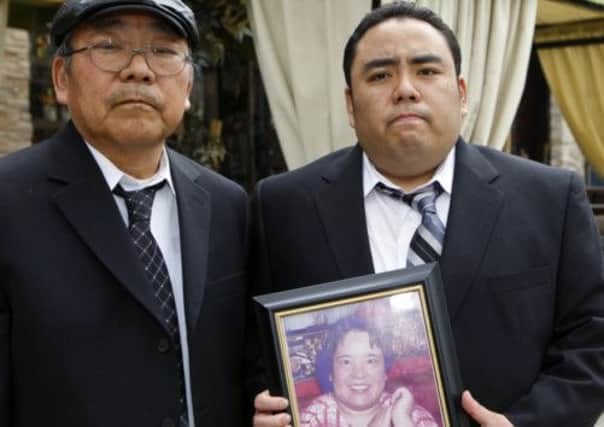Crash woman’s family lose landmark $20m Toyota case


Jurors deliberated for five days before concluding the 2006 Camry’s design did not contribute to the death of Noriko Uno, who was killed in August 2009 after she was struck by another motorist, sending her vehicle into a telephone pole and tree.
Toyota blamed driver error for the crash.
Ms Uno’s family were seeking $20 million (£12m) in damages, claiming the crash could have been avoided if Toyota had installed a brake override system. The jury ruled the 86-year-old motorist who ran a stop sign and hit Ms Uno should pay the family $10m.
Advertisement
Hide AdAdvertisement
Hide AdToyota recalled millions of cars worldwide after drivers reported some vehicles were surging unexpectedly. It has already agreed to pay $1 billion (£626m) in lawsuits filed in federal courts.
The outcome of the case involving Ms Uno could influence whether Toyota should be held responsible for sudden unintended acceleration as part of a larger group of lawsuits filed in state courts. “We believe this verdict sets a significant benchmark by helping further confirm that Toyota vehicles are safe with or without brake override,” a company spokeswoman said.
Lawyer Garo Mardirossian, for the Uno family, argued Toyota had made safety an option instead of standard by not installing a mechanism to override the accelerator. He said it also failed to warn customers what to do if an accelerator became stuck.
Toyota defended its vehicles, saying it had a state-of-the-art braking system, and argued an override component would not have prevented the crash.
The company’s lawyers said Ms Uno, from Upland, California, probably mistook the accelerator for the brake.
Toyota has blamed the driver, stuck accelerators or floor mats that trapped the accelerator for the sudden unintended speed claims that led to the recalls.
Litigation has gone on in state and federal courts, with both sides agreeing to settlements so far.
Federal lawsuits contend that Toyota’s electronic throttle control system was defective and caused vehicles to surge suddenly. Lawyers for the claimants have deposed Toyota employees, reviewed software code and pored over thousands of documents.
Advertisement
Hide AdAdvertisement
Hide AdToyota has denied the allegation, and neither the US National Highway Traffic Safety Administration nor Nasa found evidence of electronic problems.
The Uno case is the first so-called “bellwether” case in state courts – it is chosen by a judge to help predict the potential outcome of other lawsuits making similar claims.
Other cases are expected to go to trial in state courts later this year. There are more than 80 similar cases filed in American state courts.